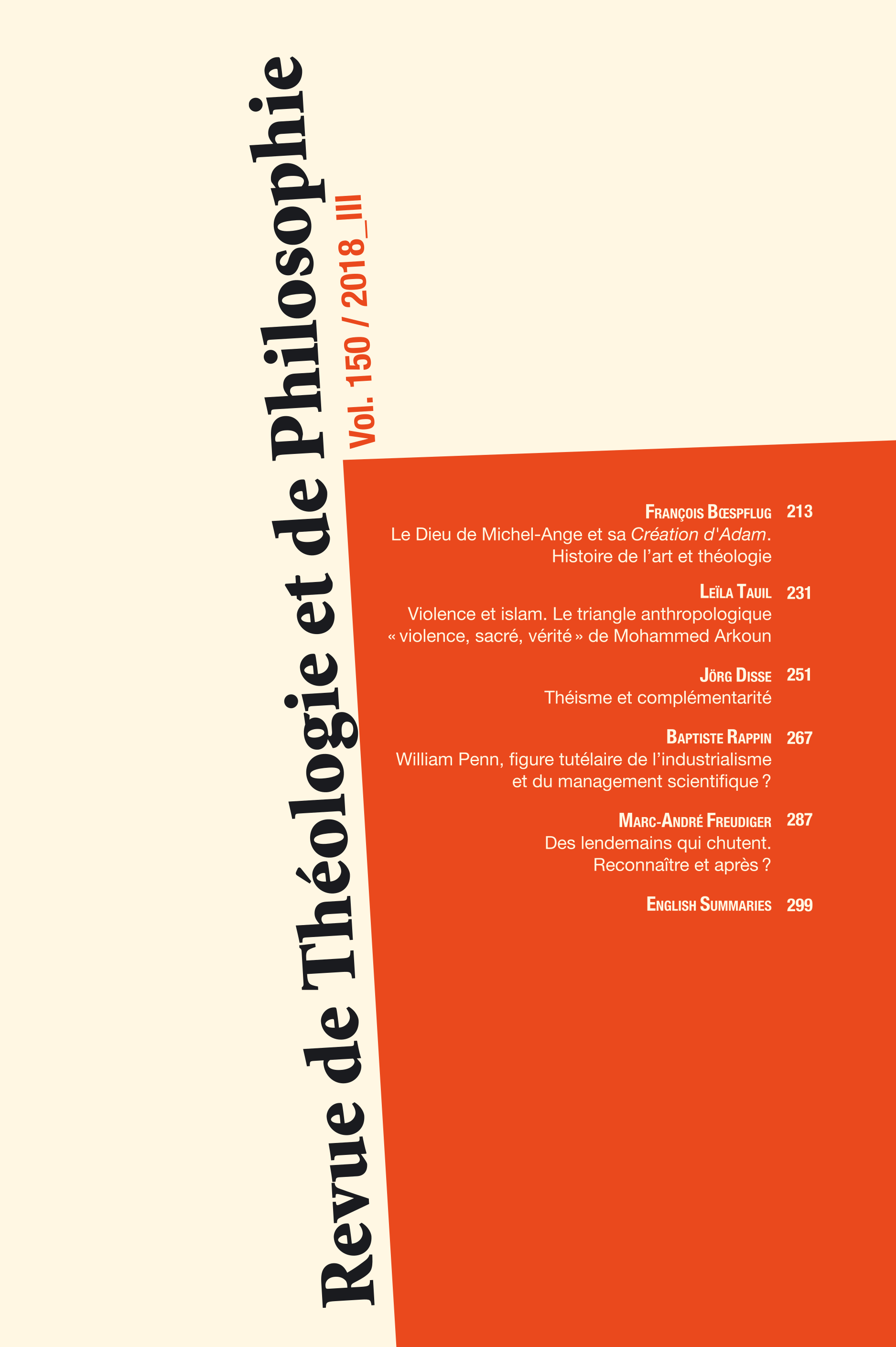Recognize, and after?
Reflections from two developments of the Reformation
Abstract
What happens as a movement of ideas, facing a crisis, reorganizes itself and undergoes a “second-order change” (following the pragmatics of human communication of the Palo Alto school)? Can it be said that the crisis has then been overcome? Two cases related to the theology of the Protestant Reformation suggest a negative answer. It is possible to go backwards. The possibility that new developments in thinking may contradict earlier, original insights, is always present. In order to understand this “blindness” phenomenon, it may be useful to consider (using the model known as “figure-ground”) the perspectives, which are irreducible and which mutually condition each other, which impact thinking, and to understand how this “blindness” phenomenon functions.
How to Cite
More Citation Formats
Issue
